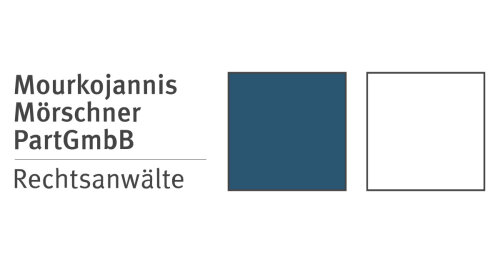Best Debt & Collection Lawyers in Germany
Share your needs with us, get contacted by law firms.
Free. Takes 2 min.
Or refine your search by selecting a city:
List of the best lawyers in Germany
About Debt & Collection Law in Germany
Debt & Collection law in Germany is governed by a comprehensive legal framework intended to manage and resolve issues related to debt recovery and creditor's rights. The legal process prioritizes protecting both debtor and creditor interests, ensuring fair treatment across the board. The framework includes provisions for default notices, court orders, and enforcement measures, regulated under the German Civil Code (BGB) and other related laws.
Why You May Need a Lawyer
People may require legal assistance in debt and collection matters for several reasons. Common scenarios include:
- Receiving a formal notice of debt you believe is incorrect or unjust.
- Facing aggressive or illegal collection practices by creditors or collection agencies.
- Navigating the complexities of insolvency or bankruptcy proceedings.
- Negotiating settlements or restructuring debts with creditors.
- Requiring assistance in enforcing a court order for debt repayment.
In these situations, a lawyer specialized in debt and collection can help assess your case, advise on legal rights and options, and represent you in negotiations or court proceedings.
Local Laws Overview
Several key aspects of German law are particularly relevant to debt and collection:
- The German Civil Code (BGB): This forms the main legal basis for debt and obligations, including the rights and duties of debtors and creditors.
- The Introductory Act to the Civil Code (EG BGB): Governs procedural issues such as limitation periods for debt claims.
- The German Insolvency Act: Outlines the procedures for insolvency proceedings, providing a framework to deal with overindebted individuals or entities.
- The German Act Against Unfair Competition (UWG): Addresses illegal or unethical debt collection practices.
- Enforcement Orders: Creditors may seek an enforcement order against a debtor for outstanding debts through the court system.
Frequently Asked Questions
1. What should I do if I receive a debt collection letter?
Respond promptly, ideally after consulting a lawyer who can verify the legitimacy of the claim and advise on possible defenses.
2. How can I dispute a debt claim in Germany?
You can file a formal objection with the court or contact the creditor to negotiate, but ensure you have appropriate legal advice to strengthen your case.
3. What is a default judgment?
A default judgment is a court decision rendered when a defendant fails to respond to a summons, allowing the creditor to collect the debt.
4. Are there any consumer protections against abusive collection practices?
Yes, illegal or harassing collection tactics are prohibited under the German Act Against Unfair Competition and consumers can report such practices.
5. What happens if I ignore a collection notice?
Ignoring a collection notice can lead to court action, resulting in increased costs and possible enforcement orders against you.
6. Can debt collectors contact me at work?
While it is not illegal, contacting you at work is generally discouraged and can be considered harassment if it disrupts your employment.
7. How long can creditors pursue a debt in Germany?
The statute of limitations typically ranges from three to thirty years, varying with the type and origin of the debt.
8. What is a payment plan agreement?
A payment plan restructures your debt into manageable installments, which can be negotiated with your creditor or through legal representation.
9. Is bankruptcy an option for handling unmanageable debts?
Yes, personal insolvency allows individuals to eliminate debts after a period of repayment (typically six years for private individuals), but requires thorough legal consultation.
10. Can I represent myself in a debt-related court case?
While self-representation is possible, having a legal expert is advisable, given the complexities and technicalities of debt law procedures.
Additional Resources
Consider contacting the following organizations and resources for assistance:
- Consumer Advice Centers (Verbraucherzentrale): Offer advice and support for consumer-related issues including debt and collection matters.
- The German Bar Association (Deutscher Anwaltverein): Can help locate specialized lawyers in debt and collection law.
- Court websites and portals: Provide information on legal processes and forms necessary for pursuing or defending a debt case.
- Insolvency support agencies (Insolvenzverwalter): Offer professional guidance through the bankruptcy process.
Next Steps
If you require legal assistance for a debt or collection issue in Germany, consider the following steps:
- Gather all relevant documentation related to your case, such as contracts, letters, and financial statements.
- Contact a lawyer specialized in debt and collection law for a consultation to understand your rights and options.
- Consider alternative dispute resolutions, such as mediation to potentially resolve the matter outside of court.
- Ensure you respond to any legal notices or court documents promptly to avoid default judgments or additional penalties.
Facing legal challenges in debt and collection can be daunting, but with the right legal guidance, you can navigate the complexities of the system more effectively.
Lawzana helps you find the best lawyers and law firms in Germany through a curated and pre-screened list of qualified legal professionals. Our platform offers rankings and detailed profiles of attorneys and law firms, allowing you to compare based on practice areas, including Debt & Collection, experience, and client feedback.
Each profile includes a description of the firm's areas of practice, client reviews, team members and partners, year of establishment, spoken languages, office locations, contact information, social media presence, and any published articles or resources. Most firms on our platform speak English and are experienced in both local and international legal matters.
Get a quote from top-rated law firms in Germany — quickly, securely, and without unnecessary hassle.
Disclaimer:
The information provided on this page is for general informational purposes only and does not constitute legal advice. While we strive to ensure the accuracy and relevance of the content, legal information may change over time, and interpretations of the law can vary. You should always consult with a qualified legal professional for advice specific to your situation.
We disclaim all liability for actions taken or not taken based on the content of this page. If you believe any information is incorrect or outdated, please contact us, and we will review and update it where appropriate.
Browse debt & collection law firms by city in Germany
Refine your search by selecting a city.













